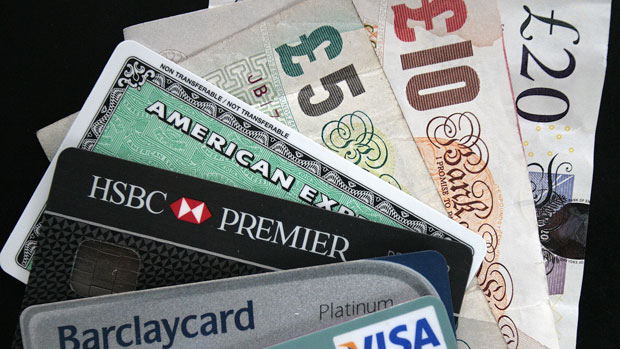Consumer debt default risk at post-crisis high
According to official figures, the average British household will owe £24,000 more by 2020

A free daily email with the biggest news stories of the day – and the best features from TheWeek.com
You are now subscribed
Your newsletter sign-up was successful
British households are at more risk of defaulting on their debts than at any time since the financial crisis, according to a first-of-its-kind analysis of consumer borrowing.
Based on projections by the Office for Budget Responsibility (OBR), the new report by Arrow Global, one of Britain's biggest specialist debt collectors, estimates that as many as a million more households could fall behind on their debt repayments over the next five years "as they struggle with tougher economic conditions".
The Times says a sharp increase in mortgage, credit card and loan defaults would raise the prospect of a rise in home repossessions and personal bankruptcies and mark a reversal of seven years of falling debt levels. According to the OBR, every household will be £24,000 further in debt by 2020, amounting to £640bn across Britain in total.
The Week
Escape your echo chamber. Get the facts behind the news, plus analysis from multiple perspectives.

Sign up for The Week's Free Newsletters
From our morning news briefing to a weekly Good News Newsletter, get the best of The Week delivered directly to your inbox.
From our morning news briefing to a weekly Good News Newsletter, get the best of The Week delivered directly to your inbox.
The UK is "now at a turning point", says the Times, as rising consumer confidence and healthier banks fuel borrowing that, combined with higher interest rates, will put a significant number of people under strain.
While the debt-to-income ratio has fallen since the financial crisis in 2008, a new survey by the Bank of England has shown that borrowing is once again on the rise.
According to a study from Citizens Advice, more than a quarter of a million Britons "live for the day" when it comes to their finances and half sometimes run out of money at the end of the month, which is one of a number of causes of excess debt. It also warned that people don't seek money advice until they reach a crisis point, such as being unable to afford debt repayments, notes The Independent.
A free daily email with the biggest news stories of the day – and the best features from TheWeek.com
-
 How the FCC’s ‘equal time’ rule works
How the FCC’s ‘equal time’ rule worksIn the Spotlight The law is at the heart of the Colbert-CBS conflict
-
 What is the endgame in the DHS shutdown?
What is the endgame in the DHS shutdown?Today’s Big Question Democrats want to rein in ICE’s immigration crackdown
-
 ‘Poor time management isn’t just an inconvenience’
‘Poor time management isn’t just an inconvenience’Instant Opinion Opinion, comment and editorials of the day
-
 Labour shortages: the ‘most urgent problem’ facing the UK economy right now
Labour shortages: the ‘most urgent problem’ facing the UK economy right nowSpeed Read Britain is currently in the grip of an ‘employment crisis’
-
 Will the energy war hurt Europe more than Russia?
Will the energy war hurt Europe more than Russia?Speed Read European Commission proposes a total ban on Russian oil
-
 Will Elon Musk manage to take over Twitter?
Will Elon Musk manage to take over Twitter?Speed Read The world’s richest man has launched a hostile takeover bid worth $43bn
-
 Shoppers urged not to buy into dodgy Black Friday deals
Shoppers urged not to buy into dodgy Black Friday dealsSpeed Read Consumer watchdog says better prices can be had on most of the so-called bargain offers
-
 Ryanair: readying for departure from London
Ryanair: readying for departure from LondonSpeed Read Plans to delist Ryanair from the London Stock Exchange could spell ‘another blow’ to the ‘dwindling’ London market
-
 Out of fashion: Asos ‘curse’ has struck again
Out of fashion: Asos ‘curse’ has struck againSpeed Read Share price tumbles following the departure of CEO Nick Beighton
-
 Universal Music’s blockbuster listing: don’t stop me now…
Universal Music’s blockbuster listing: don’t stop me now…Speed Read Investors are betting heavily that the ‘boom in music streaming’, which has transformed Universal’s fortunes, ‘still has a long way to go’
-
 EasyJet/Wizz: battle for air supremacy
EasyJet/Wizz: battle for air supremacySpeed Read ‘Wizz’s cheeky takeover bid will have come as a blow to the corporate ego’